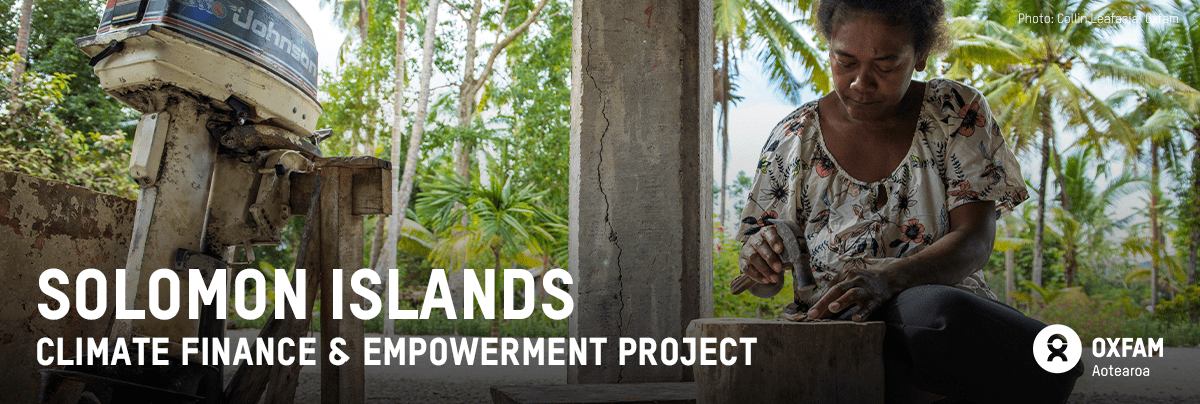
Solomon Islands is an archipelago of 922 islands, grouped into nine main islands, with Guadalcanal as the largest that hosts the capital, Honiara. More than half of workers (65%) are in vulnerable jobs and are particularly susceptible to economic shocks, including those caused by natural disasters. Despite their determination, unique skills and importance in the community, women in Solomon Islands have little influence on the critical decisions that directly impact their lives because they are not often included in decision-making groups or processes. They face a near-constant threat of flooding, inadequate roads and infrastructure, and very limited opportunities to push their government for improvements. Their homes and businesses are in daily danger, and yet those in power, such as politicians and village elders, do not always hear them.
A heavily male-dominated society, with restrictive beliefs about women’s roles and abilities, has created an environment where women are not encouraged to speak up about the challenges they face or their ideas for positive change. Widely held stereotypes portray women as less able than men and block them from leadership roles. Examples of these long-standing beliefs include the notion that women’s main responsibility is to care for the family, that men should not be involved in unpaid care work, and that women should also always have the permission of their husbands when engaging in any economic activity. Across all ages, girls and women’s participation in education, training and employment opportunities are hindered by high levels of violence against them. As a result, women’s voices are not always heard and they are less able to contribute to the decisions that significantly impact their lives.

KŌTUI
Solomon Islands Climate Finance & Empowerment Project is part of our larger five-year, multi-country programme, Kōtui. Read more about Kōtui here!
This te reo Māori word means binding together, or interlacing, during weaving. The woven mat represents dialogue and joint problem-solving in Pacific countries and in Timor-Leste. It is an appropriate symbol for a programme focused on inclusive and equitable governance.
CLIMATE FINANCE
‘Climate finance’ is the term used for funds that support people to stop climate destruction or adapt to its impacts. Effective climate finance is funding that all people can use and benefit from, especially people who experience discrimination and poverty. Oxfam’s work in Solomon Islands seeks to ensure that climate finance decision-makers factor in the needs of women, that there is greater transparency in how climate funds are spent and allocated, and that women’s voices are included in policy and finance decisions.
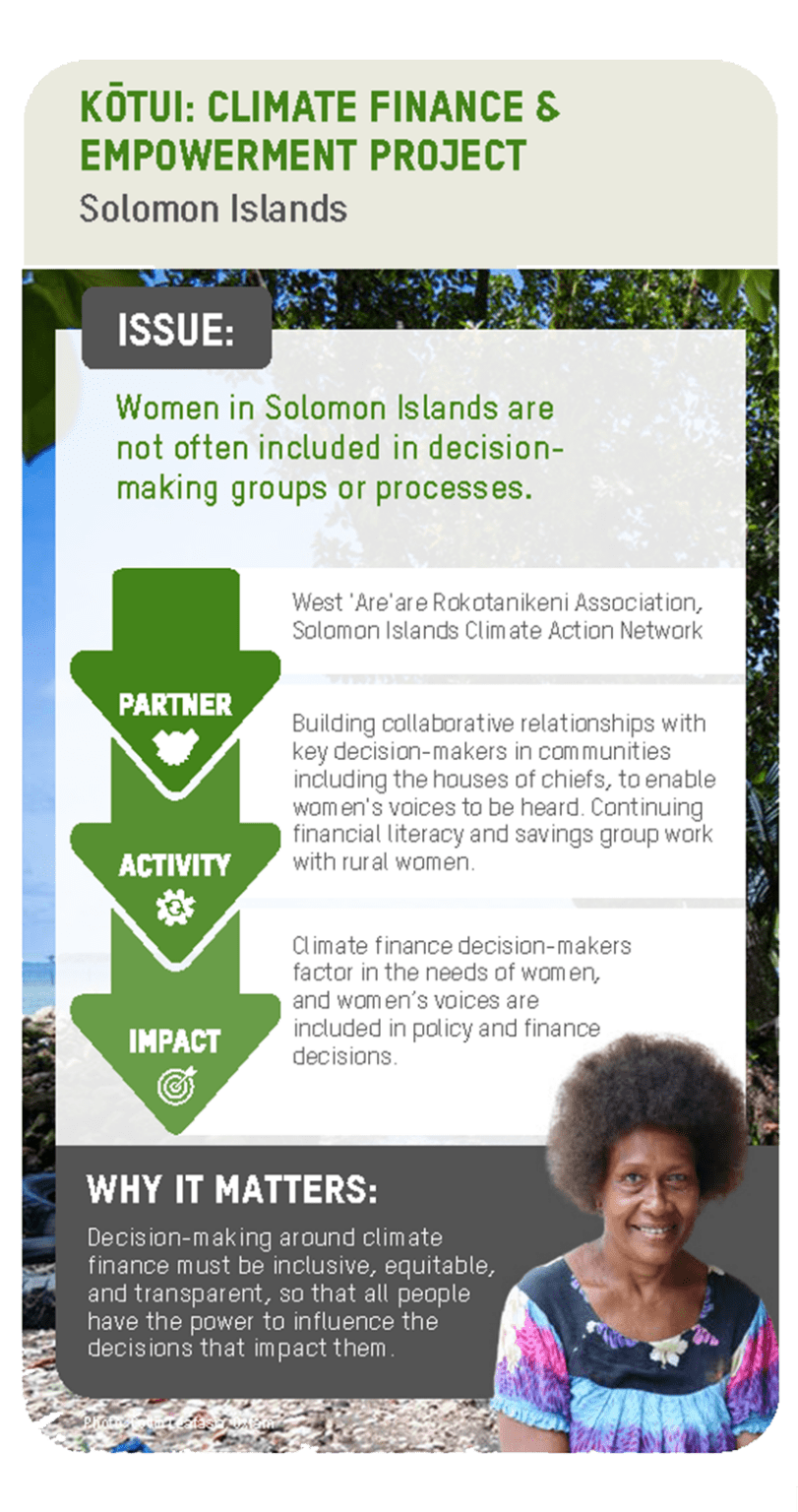
Women’s increased access to resources
This project will contribute to the Kōtui goal with two long-term outcomes. First, women will have increased access to and control over household and community resources that can improve their resilience. Much of this work will be structured around existing community savings groups in the home area of our partner West Are’are Rokotanikeni Association (WARA), on Malaita Island. It will then expand to further groups and provinces. These savings groups give women a space to come together, store their savings safely, learn financial literacy skills, build their confidence and increase their participation in leadership and decision-making in rural communities. Community led workshops will lift the ability of women (and men) to articulate their issues and negotiate with those who control the resources they need to achieve their aims, in an organised and systematic manner.
Improved governance
The second long-term outcome will ensure that decision-making around climate finance, its governance, is more inclusive, equitable, and transparent, so that all people have the power to influence the decisions that impact them.
On Malaita island, WARA has continued to work with the houses of chiefs, the traditional leadership structures, to make sure that they are well-equipped to lead to community in a way that is both inclusive and effective. In these communities that sit just above sea level and feel the impacts of climate change at every high tide, it’s critical that everyone is involved in discussions and decisions about the future of the community. So it’s significant that just over a quarter of participants in governance and leadership training for the ‘small’ houses of chiefs were women.
Our other partner, Solomon Islands Climate Action Network (SICAN) – will look closely at climate finance in Solomon Islands to understand how much, how and where climate finance flows to communities. SICAN will work to build collaborative relationships with key decision-makers in government departments to improve the governance of climate finance.
In February 2024, Oxfam Aotearoa staff traveled to Malaita province in Solomon Islands to visit rural villages where Kо̄tui partner, WARA, runs women’s savings groups and trainings. Programme participants from Aiarai village explain how climate change and rising seas are affecting their livelihoods, and ways that WARA is helping them adapt and learn new skills so that they can better advocate for the climate finance that can improve their situations.
“Some of my plantation of swamp taro, sea rise also destroyed. Come and destroy all this garden of swamp taro. It’s level, all here, is level with the sea. So all this garden of swamp taro is destroyed by sea rise. I find it very difficult, like in this village. But still, we try our best. I thank WARA because more knowledge I get from WARA – how to cook cake, how keeping house, keeping children, leadership. I think most of my life I take from WARA, knowledge from WARA. Even my children, I teach them how to become a good leader in this village.” – Joyce (pictured right).
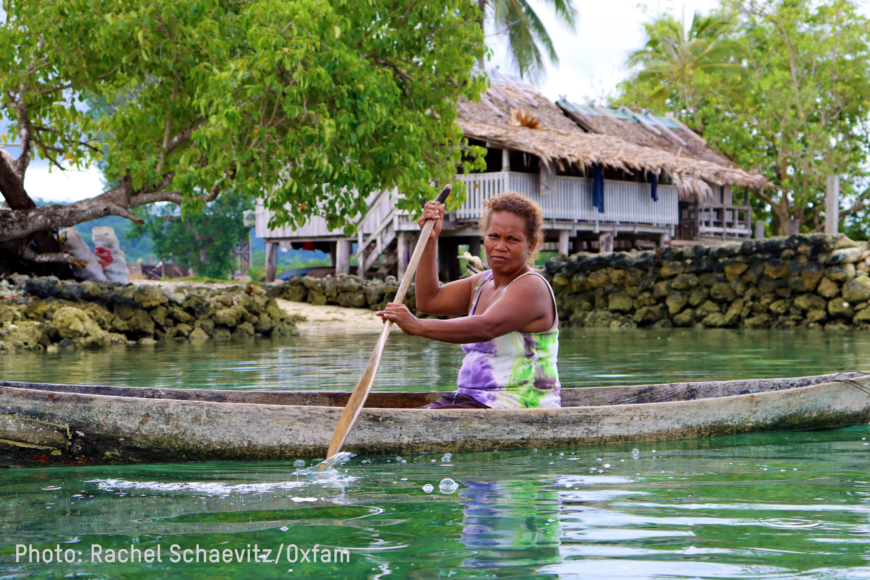
Our partners:
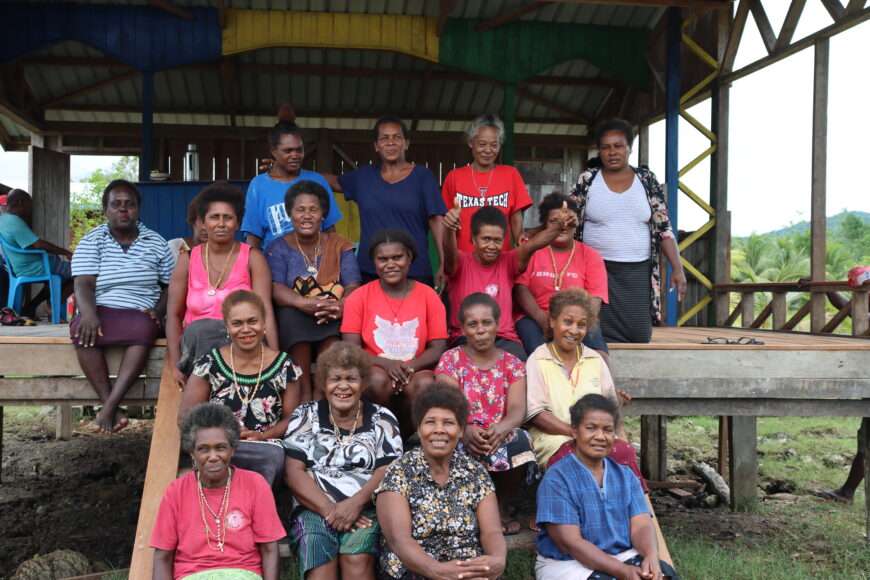
West ‘Are’Are Rokotanikeni Association (WARA)
Founded in October 1999, WARA is an indigenous, women-led organisation with deep experience of gender equity and women’s empowerment in rural communities in Solomon Islands. It supports women across five key areas: economic empowerment, leadership, climate change, research and publication.
WARA’s long-standing presence and deep relationships in Malaita have laid a strong foundation for the opening of community and tribal governance forums to women, and for more equally shared decision-making within households.
Oxfam and WARA are dedicated to empowering women in both rural and urban areas, helping them run small businesses and overcome challenges such as COVID-19 recovery, climate change, inflation, and inadequate infrastructure. Despite these obstacles, women have made significant improvements in their families’ health, education, housing, and sanitation, highlighting their resilience.
Solomon Islands Climate Action Network (SICAN)
SICAN is national network that brings together the coalition support of local, national, and international CSO’s to support and raise the voices of the most marginalised communities facing the impacts of climate change.
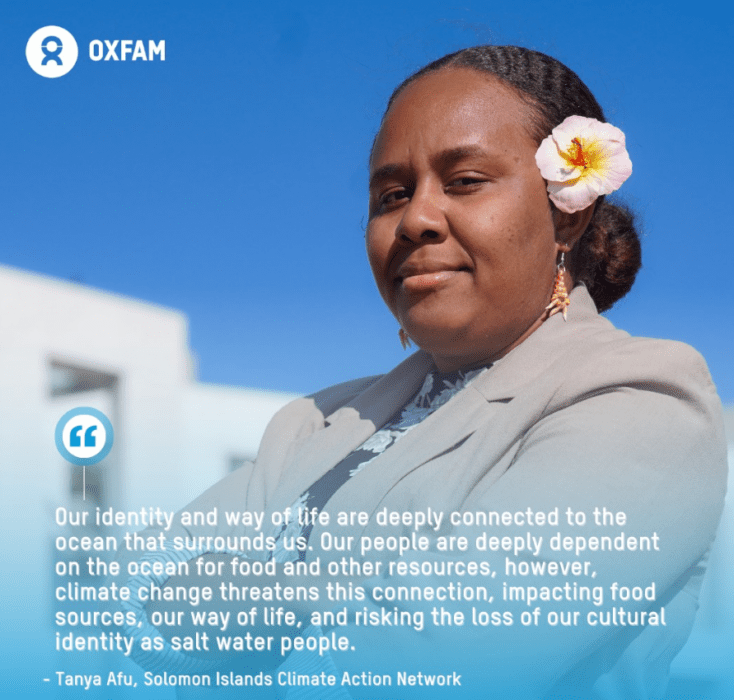

By the end of the five-year Kōtui programme…
We expect to see the following improved governance outcomes:
Women’s voices are included in more policy processes (consultations, meetings, hearings) related to community-based climate change adaptation at national and community levels
Climate adaptation policies and programmes increasingly consider the rights and roles of women and other groups facing marginalisation
Climate finance decision-makers at the national level increasingly include evidence on impacts and needs of women and other groups facing marginalisation in decision-making
Greater transparency on climate finance decision processes, allocations and impacts
More climate finance allocated to addressing the needs and priorities of women and other groups facing marginalisation





